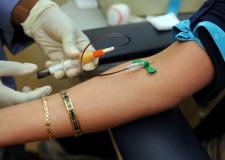Why We Need to Rethink Ethnicity-Based Genetic Testing
By Shivani Nazareth,
US News & World Report
| 11. 07. 2016
A recent study noted racial bias in the genetic databases that are important to furthering research in precision medicine. The data is skewed toward a European Caucasian population, which makes it difficult to interpret genetic variants in minority groups. As the U.S. population increasingly diversifies, we need to challenge ourselves to do better. A good place to begin is pregnancy, when nearly every woman in the U.S. is offered genetic carrier screening.
Carrier screening is the practice of testing of both mom and dad for inherited conditions that may be passed along to their baby. A pregnant woman is typically offered screening – for one condition, a few conditions or a panel – based upon her self-reported ethnic category. As an example, black patients are offered screening for sickle cell disease, Southeast Asian patients for thalassemias and Ashkenazi Jewish patients for a panel that includes Canavan and Tay-Sachs disease, among others. This approach is based on a public health model that factors cost and the availability of a reliable test into the screening equation. In the past few...
Related Articles
By Roni Caryn Rabin, The New York Times | 01.22.2026
The National Institutes of Health said on Thursday it is ending support for all research that makes use of human fetal tissue, eliminating funding for projects both within and outside of the agency.
A ban instituted in June 2019 by...
By Mike McIntire, The New York Times | 01.24.2026
Genetic researchers were seeking children for an ambitious, federally funded project to track brain development — a study that they told families could yield invaluable discoveries about DNA’s impact on behavior and disease.
They also promised that the children’s sensitive...
By Phil Galewitz, NPR | 01.20.2026
Serenity Cole enjoyed Christmas last month relaxing with her family near her St. Louis home, making crafts and visiting friends.
It was a contrast to how Cole, 18, spent part of the 2024 holiday season. She was in the hospital...
By Dan Barry and Sonia A. Rao, The New York Times | 01.26.2026
Photo by Gage Skidmore from Peoria, AZ, United States
of America, CC BY-SA 2.0, via Wikimedia Commons
Late last month, a woman posted a photograph on social media of a purple hat she had knitted, while a black-and-white dog...




